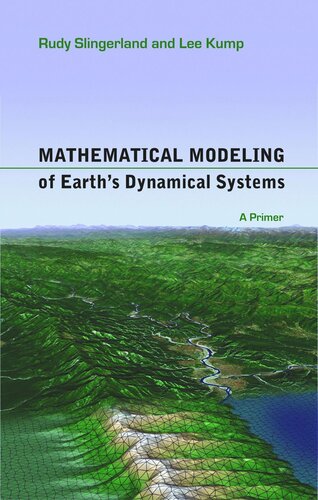

Most ebook files are in PDF format, so you can easily read them using various software such as Foxit Reader or directly on the Google Chrome browser.
Some ebook files are released by publishers in other formats such as .awz, .mobi, .epub, .fb2, etc. You may need to install specific software to read these formats on mobile/PC, such as Calibre.
Please read the tutorial at this link: https://ebookbell.com/faq
We offer FREE conversion to the popular formats you request; however, this may take some time. Therefore, right after payment, please email us, and we will try to provide the service as quickly as possible.
For some exceptional file formats or broken links (if any), please refrain from opening any disputes. Instead, email us first, and we will try to assist within a maximum of 6 hours.
EbookBell Team

4.1
50 reviewsMathematical Modeling of Earth's Dynamical Systems gives earth scientists the essential skills for translating chemical and physical systems into mathematical and computational models that provide enhanced insight into Earth's processes. Using a step-by-step method, the book identifies the important geological variables of physical-chemical geoscience problems and describes the mechanisms that control these variables.
This book is directed toward upper-level undergraduate students, graduate students, researchers, and professionals who want to learn how to abstract complex systems into sets of dynamic equations. It shows students how to recognize domains of interest and key factors, and how to explain assumptions in formal terms. The book reveals what data best tests ideas of how nature works, and cautions against inadequate transport laws, unconstrained coefficients, and unfalsifiable models. Various examples of processes and systems, and ample illustrations, are provided. Students using this text should be familiar with the principles of physics, chemistry, and geology, and have taken a year of differential and integral calculus.
Mathematical Modeling of Earth's Dynamical Systems helps earth scientists develop a philosophical framework and strong foundations for conceptualizing complex geologic systems.